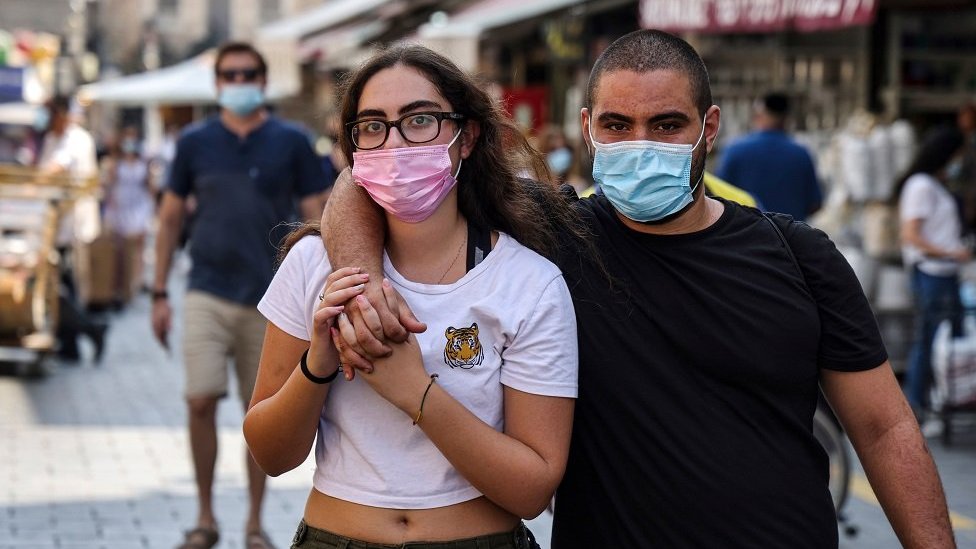
Rosh Hashanah is traditionally a time for big, family get-togethers.
But under the new three-week lockdown, Israelis must stay within 1km (0.6 miles) of their homes, with exceptions, and the number of people allowed in synagogues has been greatly reduced.
Israel currently has one of the highest Covid-19 infection rates in the world.
In the past week, new cases have reached daily highs of more than 6,000, and the country's leaders have apologised for their failure to contain the pandemic.
Israel has seen 1,169 deaths from Covid-19 and nearly 177,000 confirmed infections, according to a global tally kept by US university Johns Hopkins.
It is said to be the first developed nation to reimpose nationwide curbs.
However, the new national lockdown is widely unpopular, according to local media, with protests taking place before it came into force.
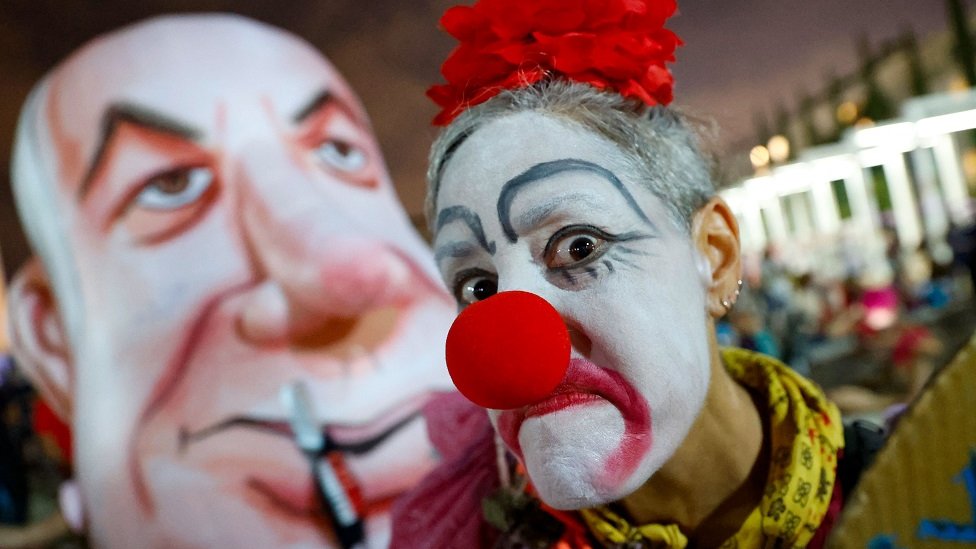
Prime Minister Benjamin Netanyahu has warned that, if necessary, he will not hesitate to impose harsher restrictions.
What are the new measures?
The restrictions, which came into effect from 14:00 local time (11:00 GMT), are the most extensive imposed in Israel since the first lockdown, which ran from late March until early May.
Under the new restrictions:
- No more than 10 people can meet indoors while groups of 20 are allowed outdoors
- Schools and shopping centres must close
- Israelis must stay within 1km of their homes, with some exceptions, including travelling to work or buying essential items
- Non-governmental offices and businesses can stay open, but must not offer in-person services
- However, supermarkets and pharmacies can remain open to the public
Mr Netanyahu has acknowledged the disruption the lockdown will cause to Jewish communities celebrating religious holidays that normally see families come together.
"This is not the kind of holiday we are used to. And we certainly won't be able to celebrate with our extended families," he said.
The restrictions on indoor gatherings will severely impact prayers in synagogues.
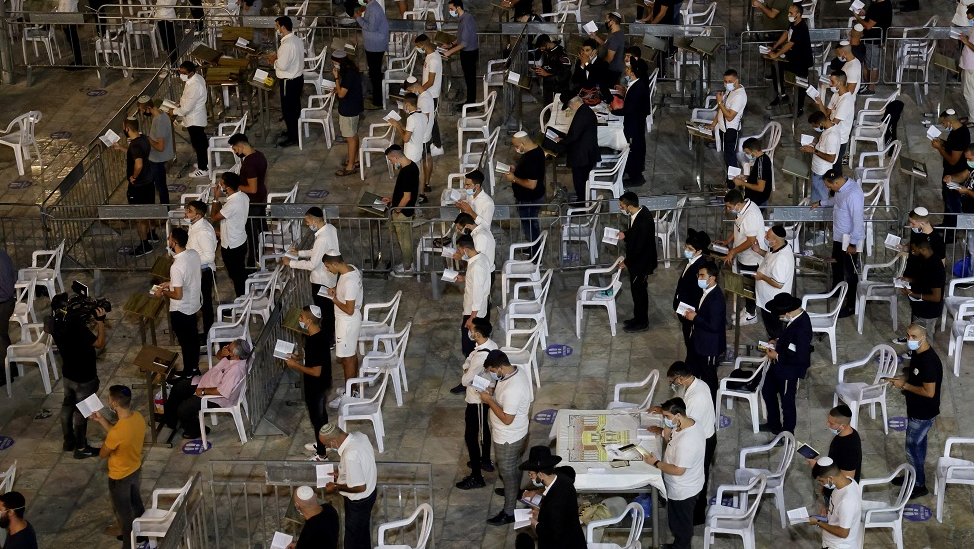
The second lockdown will cost the economy, which is in recession due to the pandemic, an estimated 6.5bn shekels (£1.4bn; $1.9bn), the finance ministry says.
"We are making every effort to balance health and economic needs," Mr Netanyahu said on Thursday in a televised address.
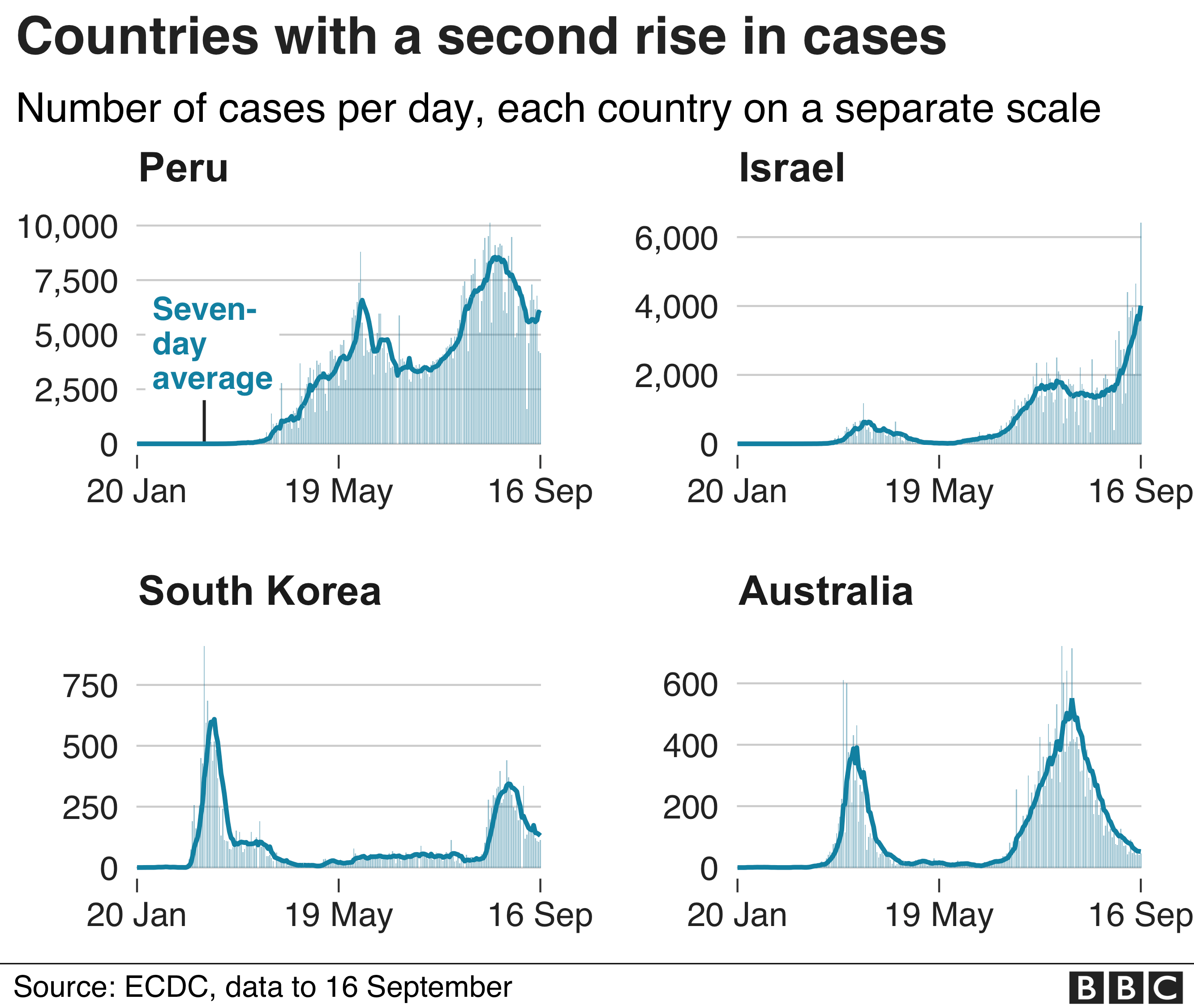


Frustration and fears for the economy

Few here in Jerusalem dispute the need for a tougher approach, but there is frustration about how the government has handled the crisis. Unemployment has rocketed and many businesses are failing.
Moshe Shrefler's popular restaurant in Mahane Yehuda market was empty just before the lockdown and has recently seen a 70% drop in business.
"[With] this closure, I hope they're going to end this story once and for all," he says.
But mum of baby twins Shiran Ben Yossi has just lost her job and is less optimistic.
"It's going to be very hard," she says. "I'm afraid it didn't work the first time and it won't work the second time."

How has Israel dealt with the spread of Covid-19?
Israel was internationally praised for its effective, tight controls early on in the pandemic.
But it is widely seen as having lifted these too quickly and it now has one of the highest infection rates in the world.
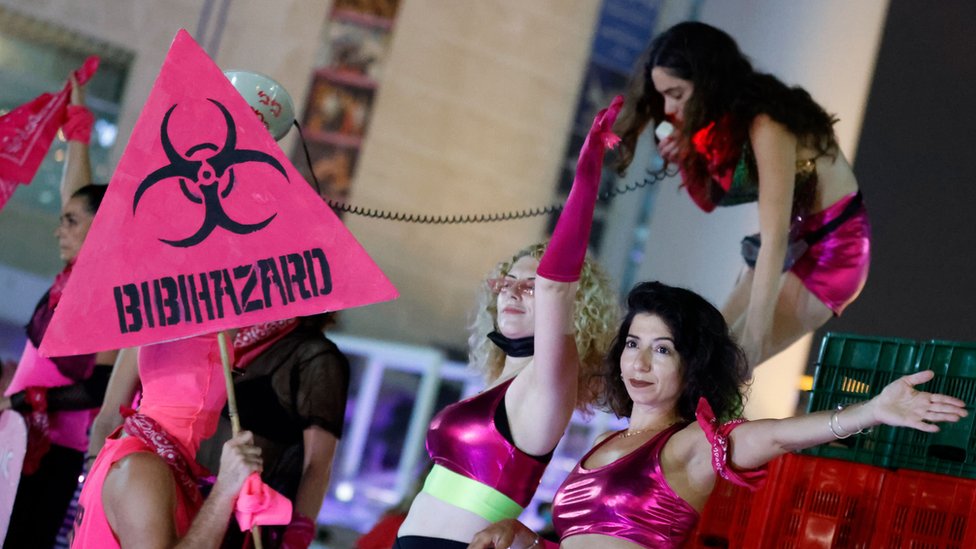
On Wednesday, President Reuven Rivlin apologised for the failure of the country's leaders to contain the virus since the first lockdown ended.
But he also appealed to Israelis to comply with the new measures: "This is a second chance and we must take it because we will not, I fear, get a third one," he warned.

What is Rosh Hashanah?
- Rosh Hashanah is the Jewish New Year festival lasting two days
- It is a celebration of the creation of the world and marks making a fresh start
- It is a time for people to reflect on the past year and to ask for forgiveness
- Jews believe that God considers a person's good and bad deeds over the last year and decides what the next year will be like for them

Housing Minister Yaakov Litzman resigned from the government on Sunday in protest at the new measures.
Mr Litzman, who leads an ultra-Orthodox Jewish party, said the lockdown would prevent Jewish people from celebrating their religious festivals, including Yom Kippur, the holiest day of the Jewish calendar, on 27 September.
Many nations are experiencing second surges of the virus. However, most governments are now imposing smaller local lockdowns in affected areas, rather than blanket national ones.
Related Topics
World - Latest - Google News
September 18, 2020 at 06:14PM
https://ift.tt/33AqwXA
Coronavirus: Israel marks Jewish New Year with second lockdown - BBC News
World - Latest - Google News
https://ift.tt/2SeTG7d
Shoes Man Tutorial
Pos News Update
Meme Update
Korean Entertainment News
Japan News Update
Bagikan Berita Ini














0 Response to "Coronavirus: Israel marks Jewish New Year with second lockdown - BBC News"
Post a Comment